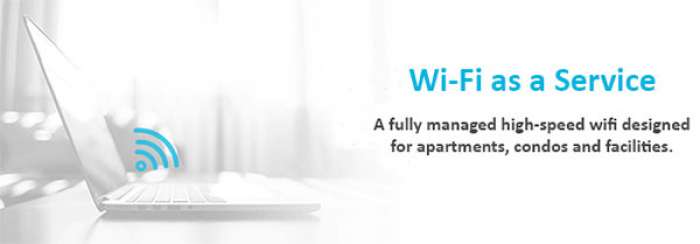WiFi as a Service is a new way of providing WiFi to businesses and organizations. It’s a turnkey solution that takes care of all the details, from installation to management to support. For businesses, WiFi as a Service can be a game-changer. It frees up IT resources and provides a simple, scalable way to provide WiFi to employees, guests, and customers. In this blog post, we’ll explore what WiFi as a Service is and how it can benefit your business. We’ll also dispel some common myths about the service so that you can make an informed decision about whether it’s right for you.
WiFi-as-a-Service (WaaS) is a cloud-based managed service that provides enterprises with secure, high-performance WiFi access. WaaS simplifies the deployment and management of WiFi networks while providing flexibility and scalability to support the changing needs of businesses.
WaaS solutions are designed to address the challenges associated with traditional on-premises WiFi deployments, such as complex hardware and software requirements, inflexible capacity planning, and high operational costs. WaaS providers manage all aspects of the WiFi network including Access Points (APs), controllers, switches, cabling, and security. This allows businesses to focus on their core competencies and optimize their resources.

In addition to enterprise-grade WiFi performance, WaaS solutions offer a number of other benefits, including:
* 24/7 monitoring and support from experienced WiFi engineers
* Automatic firmware and security updates
* On-demand scalability to support changing needs
* Redundant infrastructure for failover protection
* Flexible deployment options for maximum coverage
WiFi as a Service (WaaS) is a cloud-based, end-to-end WiFi solution that delivers secure, high-performance WiFi networks for enterprises of all sizes. WaaS solutions are deployment agnostic and can be easily integrated into any network infrastructure.
WaaS solutions enable enterprises to outsource the design, deployment, management, and optimization of their WiFi networks to a team of experts. This frees up valuable resources that can be better spent on other priorities. WaaS providers use the latest tools and technologies to deliver cost-effective, scalable WiFi solutions that meet the unique needs of each enterprise.
When you sign up for a WaaS solution, you will be assigned a dedicated account manager who will work with you to understand your specific needs and develop a customized solution. Your account manager will also be responsible for ongoing support and optimization of your WiFi network.
The first step in deploying a WaaS solution is to conduct a site survey to identify the ideal location for access points and assess the existing network infrastructure. Once the survey is complete, the WaaS provider will design and deploy a custom WiFi solution that meets your specific requirements.
After deployment, the WaaS provider will continuously monitor your WiFi network to ensure optimal performance. They will also provide 24/7 support in case of any issues. In addition, they will regularly update your firmware and make any necessary adjustments to keep your network running smoothly.
There are many benefits of WaaS, including the following:
- Reduced upfront costs: With WaaS, there is no need to make a large upfront investment in hardware and software. Instead, you can pay for what you use on a monthly basis.
- Scalability: WaaS is very scalable. You can easily add or remove users as needed, and you only pay for the capacity that you use.
- Increased flexibility: WaaS gives you the ability to change your WiFi configuration as needed. This can be very helpful if you have a dynamic business environment.
- Pay as you go: With WaaS, you only pay for what you use. There are no long-term contracts or commitments. This can help save money if your usage needs fluctuate over time.
There are a lot of benefits to using WiFi as a service, but one of the most important is network security. With so many devices connecting to the internet these days, it's more important than ever to make sure your network is secure.
One way to do this is to bring your own device (BYOD). This means that you use your own personal device, such as a laptop or smartphone, to connect to the internet. This can be done through a secure connection, such as a VPN.
A VPN will encrypt your data so that it can't be intercepted by someone else on the network. This is especially important if you're using public WiFi, such as in a coffee shop or airport.
BYOD is becoming more and more common in businesses, as it can save money on hardware and software costs. It's also more convenient for employees, who can use their own devices that they're already familiar with.
However, there are some security risks associated with BYOD. For example, if an employee's device is lost or stolen, it could give access to your network to whoever has the device.
To mitigate this risk, you should have a Bring Your Own Device policy in place that outlines how employees should securely connect their devices to the network. You should also provide training on proper security measures, such as using strong passwords and only connecting to trusted networks.